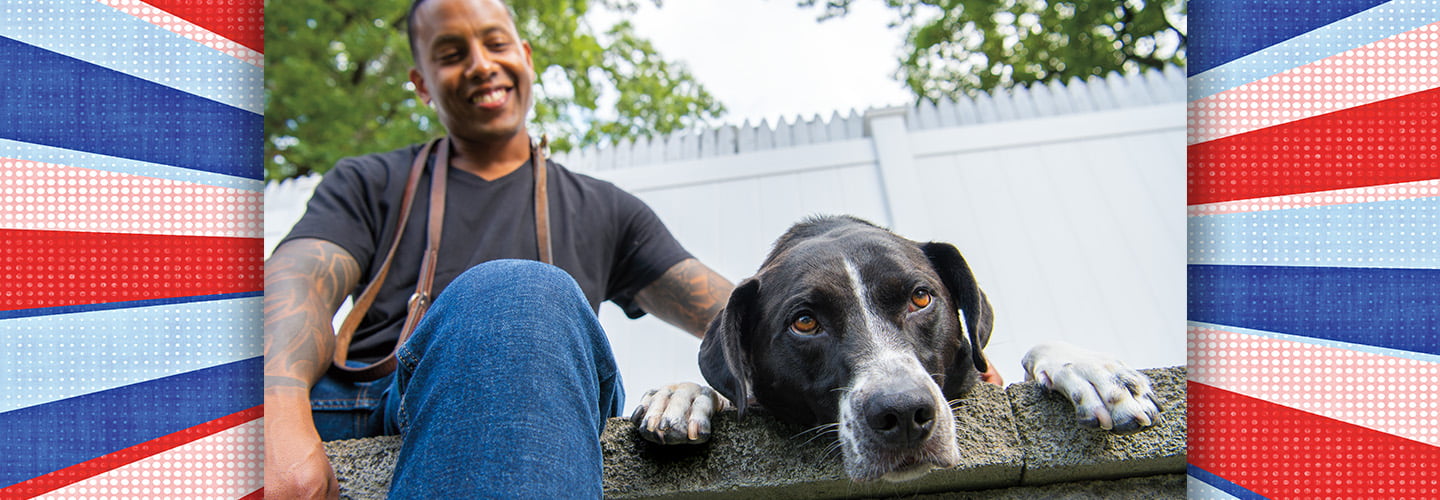David Crenshaw goes everywhere with his dog, Doc. Crenshaw’s four-legged friend joins him at his kids’ soccer games, at the grocery store, and on runs.
But Doc isn’t an ordinary pet. He’s a service dog that’s helped turn Crenshaw’s life around.
Crenshaw served in the U.S. Army in a war overseas. The experience left him feeling anxious—even years after returning home to New Jersey. He had trouble sleeping and was constantly on edge.
In 2015, doctors told him he had post-traumatic stress disorder, or PTSD. People can develop PTSD after going through something very scary or dangerous. They may feel intense sadness, anger, or fear. A study by the U.S. government shows that up to 20 percent of recent veterans have PTSD.
But with Doc by his side, Crenshaw is able to manage his PTSD symptoms.
“Doc senses when there’s something wrong,” Crenshaw explains. “He throws himself in my lap and gives me hugs and kisses. He calms me down.”
Thanks to a new U.S. law, more veterans now also have access to service dogs. The law is called the Puppies Assisting Wounded Servicemembers for Veterans Therapy Act. It’s nicknamed the PAWS Act. The law allows veterans with PTSD to help train service dogs for eight weeks. Each veteran can then adopt the canine they helped train.
David Crenshaw goes everywhere with his dog, Doc. Crenshaw’s four-legged friend joins him at his kids’ soccer games and at the grocery store. They also go on runs together.
But Doc isn’t an ordinary pet. He’s a service dog. And he’s helped turn Crenshaw’s life around.
Crenshaw served in the U.S. Army during a war. The experience left him feeling anxious. He even felt that way years after returning home to New Jersey. He had trouble sleeping. He was also constantly on edge.
In 2015, doctors told him he had post-traumatic stress disorder, or PTSD. People can develop PTSD after going through something very scary or dangerous. They may feel intense sadness, anger, or fear. A study by the U.S. government shows that up to 20 percent of recent veterans have PTSD.
But with Doc by his side, Crenshaw is able to manage his PTSD symptoms.
“Doc senses when there’s something wrong,” Crenshaw explains. “He throws himself in my lap and gives me hugs and kisses. He calms me down.”
A new U.S. law is helping other veterans get service dogs. The law is called the Puppies Assisting Wounded Servicemembers for Veterans Therapy Act. It’s nicknamed the PAWS Act. The law allows veterans with PTSD to help train service dogs. They work together for eight weeks. Each veteran can then adopt the canine they helped train.

